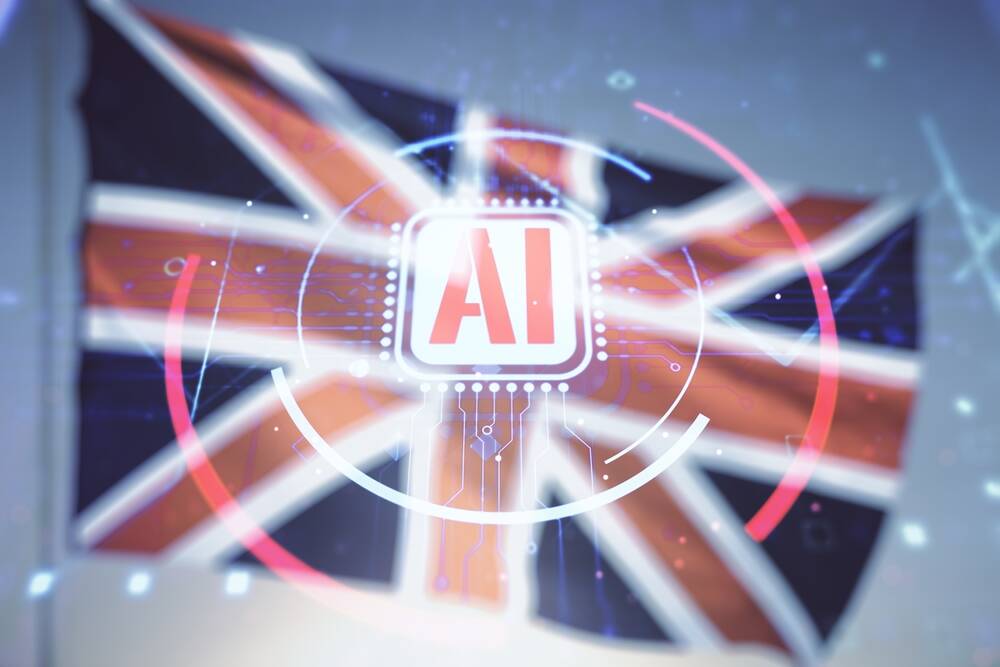
The UK government will trial large language models to help ministers analyze and draft documents as part of a push to overhaul public services using AI.
In a speech on Thursday, deputy prime minister Oliver Dowden called the technology a potential “silver bullet” to reduce the burden of routine admin tasks and make civil servants more productive.
“I believe we can take the worst things about public services, whether that’s the time-wasting, form-filling, pencil-pushing, computer-says-no, the mind-numbing-ness of it and the kinds of things that make us want to tear our hair out. We can take those things and we can turn them around with the help of AI,” he said.
Ministers will reportedly use securely-hosted instances of ChatGPT and other open-source models, trained on information from government records and speeches. The models will field questions and freedom of information requests from MPs, according to the Financial Times.
AI will also process and condense reports from hundreds of public consultations held by ministers. The drafts will be verified by staff to check sources and catch inaccuracies. Dowden believes AI should be used in public services like healthcare, education, and policing. The deputy PM envisioned the technology transcribing medical appointments and being used to develop personalized medicine.
In the future, he predicted, teachers could turn to AI assistants to help plan lessons or even turn to “AI-augmented reality” that “can take interactive learning to another level” in schools.
More worryingly, perhaps, is Dowden’s idea of crime-prevention algorithms that could “direct police to where they are most needed” and “spot patterns of criminality to discover culprits quicker than ever.”
Experts have repeatedly warned about the biases of predictive policing. Under the EU AI Act, AI applications in law enforcement are considered “high risk” and are planning to ban systems that manipulate human behavior or classify people based on race, sexual orientation, and more.
“This is not about replacing real people with robots, it is about removing spirit-sapping, time-wasting admin and bureaucracy freeing public servants to do the important work that they do best and saving taxpayers billions of pounds in the process,” Dowden claimed.
The UK government has hired data scientists, engineers, and machine learning experts for its Incubator for AI, dubbed i.AI, a group dedicated to exploring how the technology can improve public services. i.AI is piloting ten different initiatives, including using algorithms to flag fraudulent transactions in pharmacies and moving asylum claimants out of hotels more efficiently. ®
- SEO Powered Content & PR Distribution. Get Amplified Today.
- PlatoData.Network Vertical Generative Ai. Empower Yourself. Access Here.
- PlatoAiStream. Web3 Intelligence. Knowledge Amplified. Access Here.
- PlatoESG. Carbon, CleanTech, Energy, Environment, Solar, Waste Management. Access Here.
- PlatoHealth. Biotech and Clinical Trials Intelligence. Access Here.
- Source: https://go.theregister.com/feed/www.theregister.com/2024/03/01/uk_gov_generative_ai_plan/
- :has
- :is
- :not
- :where
- 7
- a
- About
- Act
- admin
- AI
- AI Act
- algorithms
- also
- analyze
- and
- Another
- applications
- appointments
- ARE
- around
- AS
- assistants
- Ban
- based
- BE
- behavior
- being
- believe
- believes
- BEST
- biases
- billions
- burden
- bureaucracy
- bureaucratic
- by
- called
- CAN
- Catch
- ChatGPT
- check
- civil
- Claimants
- claimed
- Classify
- CO
- considered
- consultations
- could
- data
- dedicated
- deputy
- develop
- different
- direct
- discover
- do
- documents
- draft
- dubbed
- Education
- efficiently
- enforcement
- Engineers
- envisioned
- EU
- Even
- EVER
- experts
- Exploring
- field
- financial
- Financial Times
- Fix
- For
- fraudulent
- Freedom
- freeing
- from
- FT
- future
- Government
- Group
- Hair
- Have
- he
- healthcare
- Held
- help
- High
- hotels
- How
- HTTPS
- human
- Hundreds
- i
- idea
- important
- improve
- in
- Including
- incubator
- information
- initiatives
- interactive
- IT
- ITS
- jpg
- kinds
- language
- large
- Law
- law enforcement
- learning
- Lessons
- Level
- like
- machine
- machine learning
- make
- medical
- medicine
- ministers
- models
- more
- most
- moving
- needed
- of
- oliver
- on
- open source
- or
- Other
- our
- out
- Overhaul
- part
- patterns
- People
- perhaps
- Personalized
- pharmacies
- piloting
- plan
- planning
- plato
- Plato Data Intelligence
- PlatoData
- pm
- Police
- policing
- potential
- pounds
- predicted
- Prime
- prime minister
- process
- productive
- public
- Push
- Questions
- quicker
- Race
- real
- records
- reduce
- removing
- REPEATEDLY
- reportedly
- Reports
- requests
- Risk
- robots
- routine
- s
- saving
- Schools
- scientists
- servants
- service
- Services
- Sexual
- should
- Silver
- Sources
- speech
- speeches
- Spot
- Staff
- Systems
- Take
- tasks
- taxpayers
- teachers
- Technology
- ten
- than
- that
- The
- The Financial Times
- The Future
- Them
- they
- things
- this
- those
- thursday
- times
- to
- trained
- Transactions
- trial
- TURN
- Uk
- UK government
- under
- us
- use
- used
- using
- verified
- want
- warned
- we
- whether
- will
- with
- Work
- Worst
- zephyrnet













